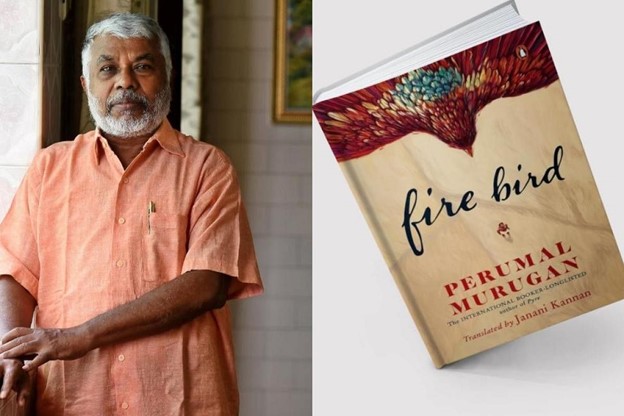Diving into the world of Tamil literature through Perumal Murugan’s "Fire Bird," translated into English by Janani Kannan, was my initiation into the enchanting realm that led this book to clinch the coveted JCB Prize for Literature 2023. Murugan, a seasoned nominee for literary awards, once again secured his place in the limelight with this poignant piece of work. My journey through Murugan’s narrative not only unveiled the magnetism of his storytelling but also illuminated his indispensable contribution to India’s literary landscape.
A Literary Reckoning
The tumultuous trajectory of Perumal Murugan’s career took a dramatic turn when he declared his "writerly demise" on Facebook in January 2015. Following vehement protests against his powerful book, "One Part Woman," which delves into the nuances of caste and patriarchy in rural India, Murugan found himself embroiled in controversy. The book daringly explores an ancient ritual allowing childless women to seek pregnancy through liaisons outside their marriages. After a legal reprieve, Murugan resurfaced with renewed vigor in his craft, ultimately earning a nomination for the International Booker Prize 2023 for his work "Pyre."
Unveiling Caste and Power
Termed the "anatomist of caste and power in India," Perumal Murugan’s narrative in "Fire Bird" dissects the entrenched structures of patriarchy and animosity prevalent in rural Indian society. At its core, "Fire Bird" unravels the relentless human pursuit for constancy and a sense of rootedness. Murugan, aiming to encapsulate the societal dynamics shaping individuals and communities, confronts themes of destitution, casteism, and the marginalized status of women in India.
However, Murugan’s brazen penmanship often sparks ire among Hindu nationalist factions, triggering vehement reactions such as protests outside his residence.
"Fire Bird": A Tale of Struggle
Set against the backdrop of rural India, "Fire Bird" (originally titled "Aalanda Patchi" in Tamil) captures the torment born from human displacement. This upheaval, whether spurred by familial discord, political strife, or the pursuit of sustenance, exacts a profound toll on individuals yearning for permanence. The narrative centers on Muthu and Peruma, ejected from their familial fold due to a contentious land division among four brothers. Muthu, the youngest son, receives the smallest share, only to confront further tribulations upon discovering Peruma’s distressing encounter with his elder brother.
Murugan vividly portrays the patriarchal tyranny prevailing within Indian families, exposing the grim underbelly of seemingly conventional family units marred by patriarchal secrets and inequalities.
Echoes of Migration and Displacement
The narrative strikes a universal chord by tapping into the anxieties following displacement, illuminating how it upends human existence and belief systems. Muthu’s disillusionment, stemming from familial neglect during the land division, propels him to sever ties with his kin, highlighting the raw fallout of migration on familial bonds.
Murugan’s narrative prowess lies in his ability to elevate mundane aspects of life—such as the symbiotic relationship between humans and the land, the significance of animals in sustenance, and the simplicity of everyday foods—to craft stories resonating universally. "Fire Bird" delves deep into the multifaceted significance of land for a farmer—offering sustenance, stability, dignity, and a sense of belonging, yet also capable of fracturing familial ties.
The Language Struggle
Murugan adamantly confronts the dominance of English in Indian publishing, terming it a form of "language oppression." Despite Tamil’s ancient heritage and its significance for millions, it often languishes as a vernacular or regional language, overshadowed by languages like Hindi and Bengali in translation hierarchies. Translators like Janani Kannan have endeavored to restore the essence of Tamil in Murugan’s work, allowing English readers to immerse themselves in the cultural tonality of the original text.
The well-deserved accolade of the JCB Prize for Literature 2023 bestowed upon Perumal Murugan and Janani Kannan underscores the profound impact of "Fire Bird." The jury’s commendation of Kannan’s translation for encapsulating not just the essence of Tamil but an entire way of life reinforces the depth and significance of this thought-provoking narrative.
In essence, "Fire Bird" stands as a testament to Murugan’s storytelling prowess, weaving tales within tales that resonate with profound insights into the human condition.






